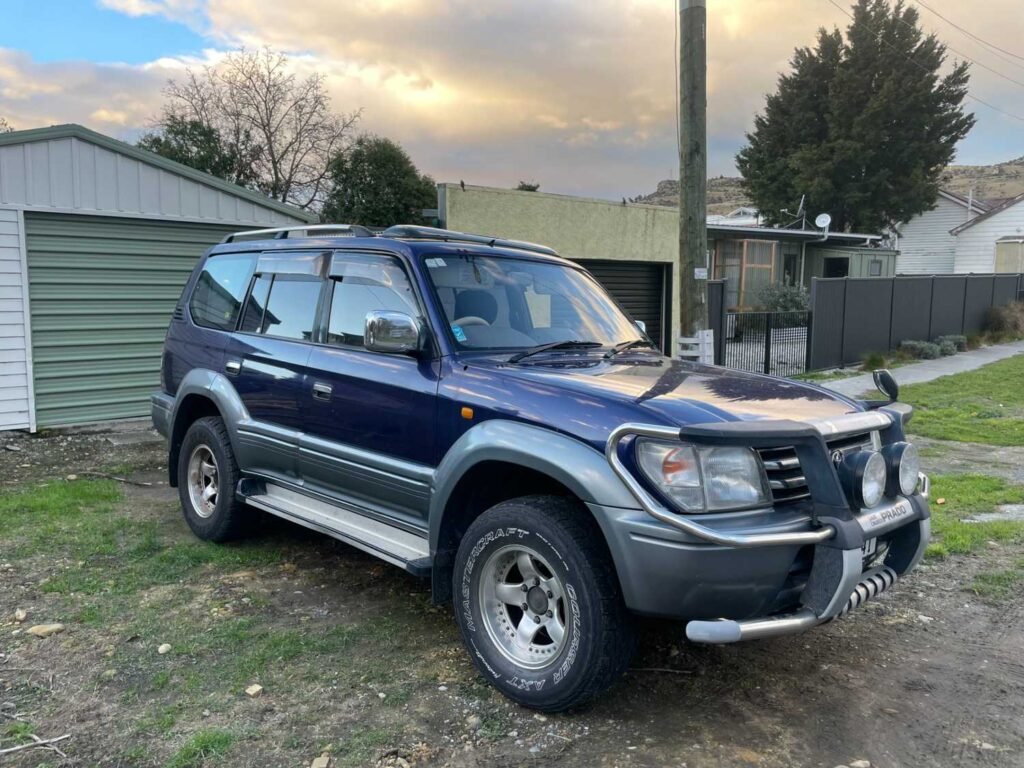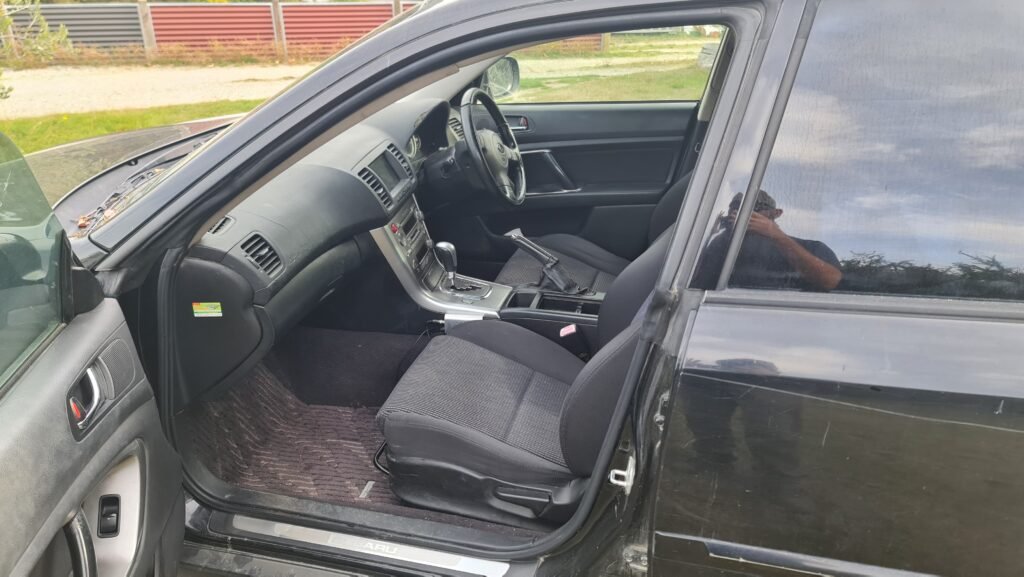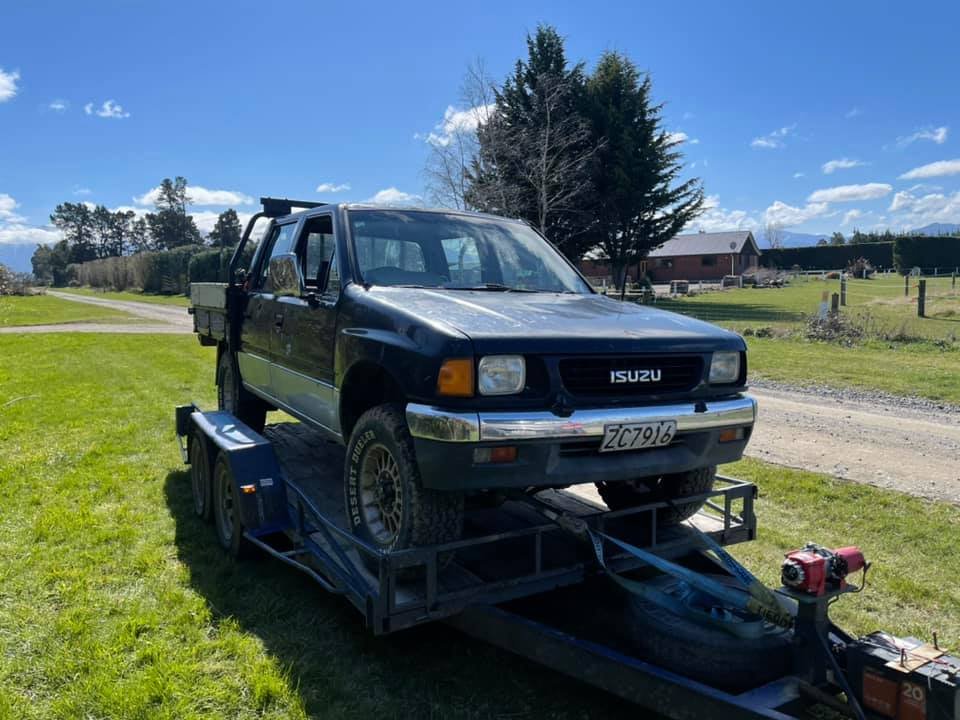Determining the value of your car is an important step when you’re thinking about selling, trading, or even insuring your vehicle. Whether you’re curious about its current worth or ready to sell, understanding the factors that affect its value is crucial. In this comprehensive guide, we’ll cover the basics of car valuation and explore the key elements that can influence the price of your vehicle.
The Basics of Car Valuation
Before diving into the specifics, it’s essential to understand the fundamentals of car valuation. When asking, “How much is my car worth?” the answer depends on several factors, including the car’s age, make, model, mileage, condition, and market demand. Car valuation is the process of determining the vehicle’s current market value, which can be influenced by a range of variables.
There are several common methods to assess a car’s value, such as:
-
Online Valuation Tools: Websites like Kelley Blue Book, Edmunds, and AutoTrader allow you to input your car’s details and receive an estimated value. These tools are a useful starting point for understanding the potential market value of your car.
-
Professional Appraisal: For a more accurate valuation, you can have your car appraised by a professional. This involves a detailed inspection, where an expert evaluates the vehicle’s condition, history, and market trends to provide a precise valuation.
-
Dealership Trade-In Offers: If you’re planning to trade in your car, dealerships will often provide a valuation as part of their trade-in offer. While this offer might be lower than a private sale price, it’s a quick and convenient option.
-
Private Sale Comparisons: Looking at similar cars for sale in your area can give you a good idea of what your vehicle might be worth. Online listings and dealership prices can help you compare vehicles with similar specifications and conditions.
Key Factors That Influence Your Car’s Value
Several factors significantly impact the value of your car. Here’s a closer look at the most important ones:
1. Age and Mileage
The age and mileage of a vehicle are two of the most critical factors in determining its value. Generally, older cars with higher mileage are worth less due to the likelihood of wear and tear. However, low mileage on an older vehicle can increase its value, particularly if it has been well-maintained. For example, a classic car with low mileage can often be worth more than a newer car with heavy usage.
2. Make and Model
The make and model of your car also have a significant impact on its value. Popular and reliable brands such as Toyota, Honda, and Ford tend to hold their value better over time. SUVs and trucks, in particular, are often more valuable due to their popularity and practicality. Limited edition models or vehicles with unique features can also command higher prices, while cars with known issues or recalls may see a drop in value.
3. Condition
Your car’s overall condition is one of the main factors in its valuation. A vehicle that is in excellent condition, free from major dents, scratches, or mechanical problems, will be worth more than one that requires repairs. There are generally four categories of condition used to assess value:
- Excellent: A car with no significant cosmetic or mechanical issues.
- Good: A car with minor wear and tear but in good working order.
- Fair: A vehicle with visible damage or mechanical problems that may need attention.
- Poor: A car that requires extensive repairs or restoration.
Detailing your car before an appraisal can improve its condition rating and potentially increase its value.
4. Market Demand
Market demand is another key factor in determining the value of your car. If your vehicle’s make and model are in high demand, you may be able to sell it for a higher price. Conversely, if the market is saturated or the demand for your car is low, you may need to settle for a lower offer. Seasonal demand can also play a role—convertibles, for instance, are often more desirable in the summer, while four-wheel-drive vehicles may see increased demand in the winter.
5. Location
Your location can significantly impact your car’s value. In urban areas where public transport is readily available, smaller, fuel-efficient cars may be more desirable. In contrast, in rural areas, larger vehicles such as trucks and SUVs may hold greater value. Regional weather conditions can also influence a car’s value—vehicles in areas prone to harsh winters may be worth less due to the potential for rust and other weather-related damage.
6. Vehicle History
A car’s history plays a significant role in its valuation. Vehicles with a clean history—no accidents or major repairs—are typically worth more than those with a history of damage. The number of previous owners can also impact value, with cars that have had fewer owners often being more desirable. Providing a vehicle history report, such as from Carfax or AutoCheck, can help build trust with buyers and potentially raise your car’s value.
7. Modifications and Upgrades
Certain modifications and upgrades can either increase or decrease your car’s value, depending on the buyer. Performance upgrades, such as a new exhaust system, may appeal to a niche market and raise your car’s value. However, extensive modifications that deviate from the car’s original specifications can reduce its appeal to a broader audience, lowering its value. When selling a modified car, it’s important to target the right buyers who will appreciate the specific upgrades.
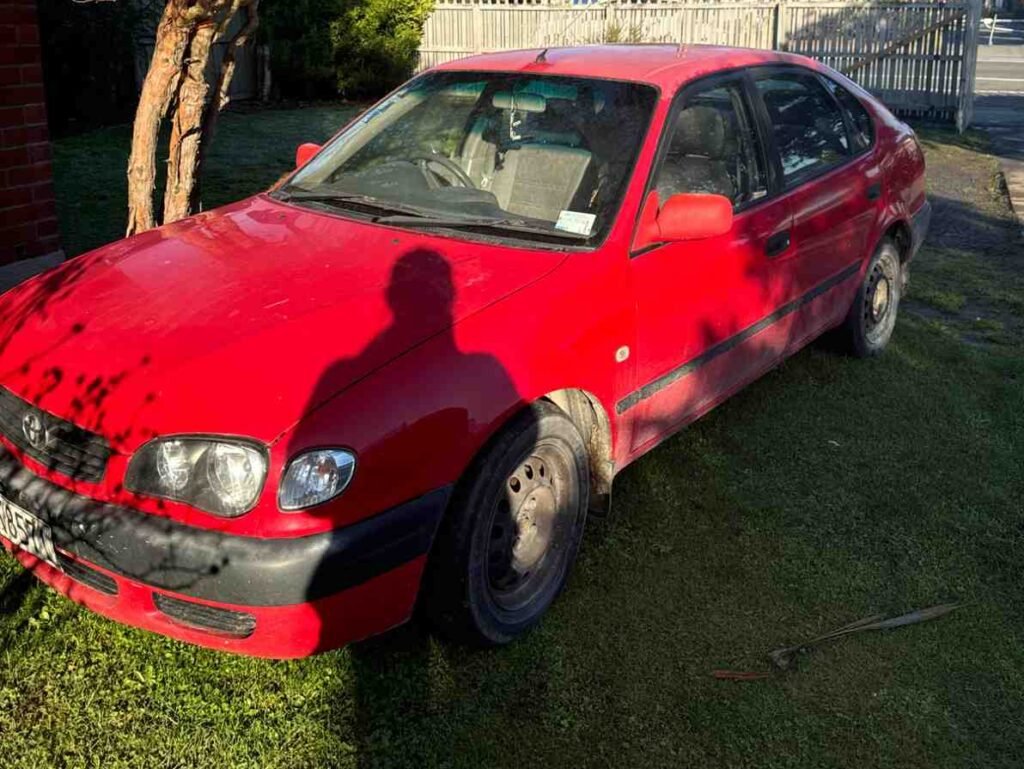
How Instant Quotes Work
Now that you have a better understanding of what factors influence your car’s value, you might be wondering how to get an accurate quote. Instant quote tools available online are designed to give you a quick estimate of your car’s worth. Here’s how they typically work:
-
Input Vehicle Information: You’ll need to enter basic details about your car, such as the make, model, year, mileage, and condition.
-
Receive an Estimate: Based on the information provided, the tool will generate an estimated value for your vehicle. This estimate is usually based on data from recent sales of similar cars in your area.
-
Review the Offer: Once you receive the estimate, you can decide whether to proceed with selling your car. Keep in mind that this initial estimate might change after a physical inspection of the vehicle.
-
Schedule an Inspection: If you’re satisfied with the initial quote, the next step is to schedule an inspection. A professional appraiser will assess your car in person to confirm its condition and final value.
-
Get Paid: After the inspection, you’ll receive a final offer. If you accept, you can typically get paid on the spot, either through cash, check, or direct deposit.
The Final Steps in Determining Your Car’s Value and Selling It
After receiving an instant quote for your car, the process of finalizing the sale is straightforward but requires careful attention to detail to ensure you get the best possible deal. In this section, we’ll explore the final steps in determining your car’s value and how to proceed with selling it, particularly through a service like Cash For Cars Tauranga. We’ll also discuss how the condition of your car and the options available to you can influence the final sale price.
Preparing for a Physical Inspection
Once you’ve received an instant quote, the next step typically involves scheduling a physical inspection. This is where the condition of your car will be assessed in more detail, potentially adjusting the initial quote you received. Here’s what to expect:
-
Condition Verification: The appraiser will verify the condition of your vehicle, checking for any discrepancies between the reported condition and the actual state of the car. This includes looking at the bodywork, interior, engine, and other key components.
-
Mileage Check: Mileage is a significant factor in a car’s value. The appraiser will confirm the mileage, as excessive wear and tear can impact the final offer.
-
Test Drive: In some cases, the appraiser may take your car for a short test drive to ensure that it’s functioning as described. This helps them gauge the overall mechanical condition of the vehicle.
-
Market Adjustments: The final offer might be adjusted based on current market conditions. If demand for your specific make and model has increased, you might receive a higher offer. Conversely, if the market is saturated, the offer might be lower than the initial estimate.
-
Final Offer: After the inspection, you’ll receive a final offer for your car. This offer is typically valid for a set period, giving you time to consider your options.
Factors That Can Lower Your Car’s Value
While many factors can increase the value of your car, it’s also essential to be aware of what might lower it. Understanding these factors can help you manage your expectations and potentially take steps to mitigate any negative impact on your car’s value.
-
-
Mechanical Issues: Cars with mechanical problems, especially major ones like engine or transmission issues, will see a significant reduction in value. Even minor issues can impact the offer, as buyers will factor in the cost of repairs.
-
Accident History: Vehicles that have been involved in accidents, even if they’ve been repaired, typically have a lower resale value. This is because accident history can indicate potential future problems and decrease the car’s desirability.
-
Cosmetic Damage: While cosmetic damage might not affect the functionality of the car, it can still lower its value. Dents, scratches, and interior wear and tear can all lead to a lower offer.
-
Market Saturation: If the market is flooded with similar vehicles, the value of your car may decrease due to lower demand. This is why it’s crucial to consider timing when selling your vehicle.
-
Outdated Technology: Cars with outdated technology or lacking modern features may be less desirable, leading to a lower valuation. Buyers today often look for vehicles with the latest safety and entertainment features.
-
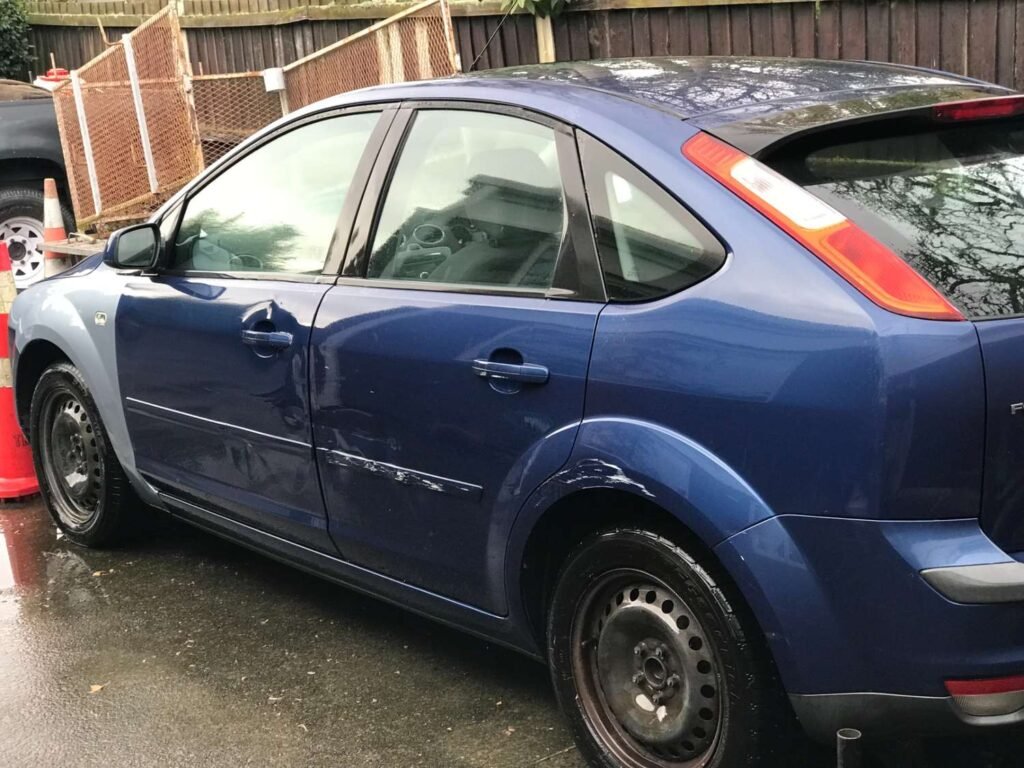
How We Scrap Cars at Cash For Cars Whangarei
At Cash For Cars Whangarei, we specialize in buying cars in all conditions, including those that are ready for scrap. Scrapping a car is a great way to get value out of a vehicle that might otherwise be worthless. Here’s how the process works:
-
Vehicle Assessment: Even if your car is destined for the scrapyard, we conduct a thorough assessment to determine which parts can be salvaged and reused. This can often increase the value of your vehicle, as usable parts are highly sought after.
-
Eco-Friendly Disposal: We are committed to environmentally friendly practices. Once the valuable parts are removed, the remaining materials are recycled. This includes metal, plastics, and any fluids that need to be safely disposed of.
-
Instant Payment: After the assessment, you’ll receive a final offer based on the scrap value of your car. We offer instant cash payment, ensuring you get paid immediately.
-
Free Car Removal: We also offer free car removal services throughout Whangarei, making the process as convenient as possible for you. Whether your car is at home, at work, or somewhere else, we’ll arrange to pick it up at no cost.
-
Legal Compliance: We handle all the necessary paperwork to ensure that the scrapping process is compliant with local regulations. This includes the deregistration of the vehicle, which we take care of on your behalf.
Why Choose Cash For Cars Whangarei?
When selling your car, especially one that might be considered scrap, it’s essential to work with a trusted and reliable service. Cash For Cars Whangarei has built a reputation for offering fair and competitive prices, transparent processes, and exceptional customer service. Here’s why we’re the top choice for car sellers in Whangarei:
-
Fair Valuations: Our team is dedicated to providing accurate and fair valuations based on the current market. We take into account all factors, including the condition, make, model, and mileage of your vehicle.
-
No Hidden Fees: When you sell your car to us, you won’t encounter any hidden fees or unexpected charges. What we offer is what you’ll get, and we make sure that our pricing is transparent from start to finish.
-
Convenient Process: We understand that selling a car can be stressful, which is why we’ve streamlined the process to be as hassle-free as possible. From instant quotes to free car removal, we handle everything so you don’t have to.
-
Local Expertise: As a local business, we have a deep understanding of the Whangarei market. This allows us to offer competitive prices and a personalized service that you won’t find with larger, national buyers.
-
Environmentally Responsible: We are committed to sustainable practices and ensure that all vehicles are scrapped in an environmentally responsible manner. By choosing us, you’re contributing to a cleaner, greener Whangarei.
Making an Enquiry
If you’re ready to find out how much your car is worth, making an enquiry is easy. Simply fill out our online form with your vehicle’s details, and we’ll provide you with an instant quote. Our team is also available by phone if you prefer to speak with someone directly. Whether you’re looking to sell a car that’s in good condition or ready for scrap, Cash For Cars Whangarei is here to offer you the best deal and a seamless selling experience.
FREE INSTANT QUOTE
Get Top Cash For Cars in Whangarei
Selling a car with problems, especially one that might be considered scrap, requires careful consideration of the best avenues available to you. Whether your car has mechanical issues, significant wear and tear, or has simply reached the end of its useful life, Cash For Cars Whangarei is your go-to solution for a fast, fair, and hassle-free sale.
Why Timing Matters
One of the most important factors to consider when selling a car with problems is timing. The value of vehicles, especially those that are older or have issues, can depreciate quickly. The longer you wait, the more likely it is that your car’s value will decrease, especially if more problems develop over time. Selling your car as soon as you decide you no longer need it can help you maximize its value.
Additionally, the market for used and scrap cars can fluctuate based on various factors, including fuel prices, demand for certain models, and the availability of new vehicles. By acting quickly, you can take advantage of current market conditions and secure a better deal.
Understanding the Impact of Mileage
Mileage plays a significant role in determining the value of your car. High mileage can be a red flag for buyers, as it often indicates that the vehicle has been heavily used and may require more maintenance in the future. However, even cars with high mileage can still be valuable if they have been well-maintained and are in good condition overall.
At Cash For Cars Whangarei, we take a holistic approach to evaluating your vehicle. While mileage is an important factor, we also consider the overall condition, maintenance history, and any repairs or upgrades that have been made. This ensures that you receive a fair and accurate valuation, regardless of your car’s mileage.
The Benefits of Local Expertise
Working with a local business like Cash For Cars Whangarei offers several advantages. As experts in the Whangarei and Bay of Plenty region, we have a deep understanding of the local market and can provide you with a more personalized and accurate valuation. We also offer faster service, including same-day car removal, so you can get cash for your car without delay.
Our team is committed to making the process as easy and stress-free as possible. From the moment you make an enquiry to the finalization of the sale, we are here to guide you every step of the way. Our local presence means that you can rely on us for prompt, reliable service and a fair deal.
What Happens to Your Car After the Sale?
Once you’ve sold your car to Cash For Cars Whangarei, you might wonder what happens next. Depending on the condition of the vehicle, it may be refurbished and resold, or it could be dismantled for parts and materials. Our eco-friendly practices ensure that as much of the vehicle as possible is recycled, reducing the environmental impact and contributing to sustainable practices.
If your car is deemed suitable for resale, it will be thoroughly inspected, and any necessary repairs will be made before it is put back on the market. For cars that are beyond repair, the useful parts will be salvaged, and the remaining materials will be recycled in an environmentally responsible manner.
Conclusion
Selling a car with problems doesn’t have to be a difficult or stressful experience. By choosing Cash For Cars Whangarei, you can rest assured that you’re getting a fair deal, fast payment, and exceptional service. Whether your car is running or not, we are here to make the process of selling it as smooth and rewarding as possible.
Don’t let your old or damaged car sit around any longer—turn it into cash today. Contact Cash For Cars Whangarei to get started with a free, no-obligation quote. Our friendly team is ready to help you through every step of the process, ensuring that you get the best possible value for your car. Whether you’re in Whangarei, Mount Maunganui, Papamoa, or anywhere else in the Bay of Plenty, we’re here to offer you top cash and a seamless selling experience.


